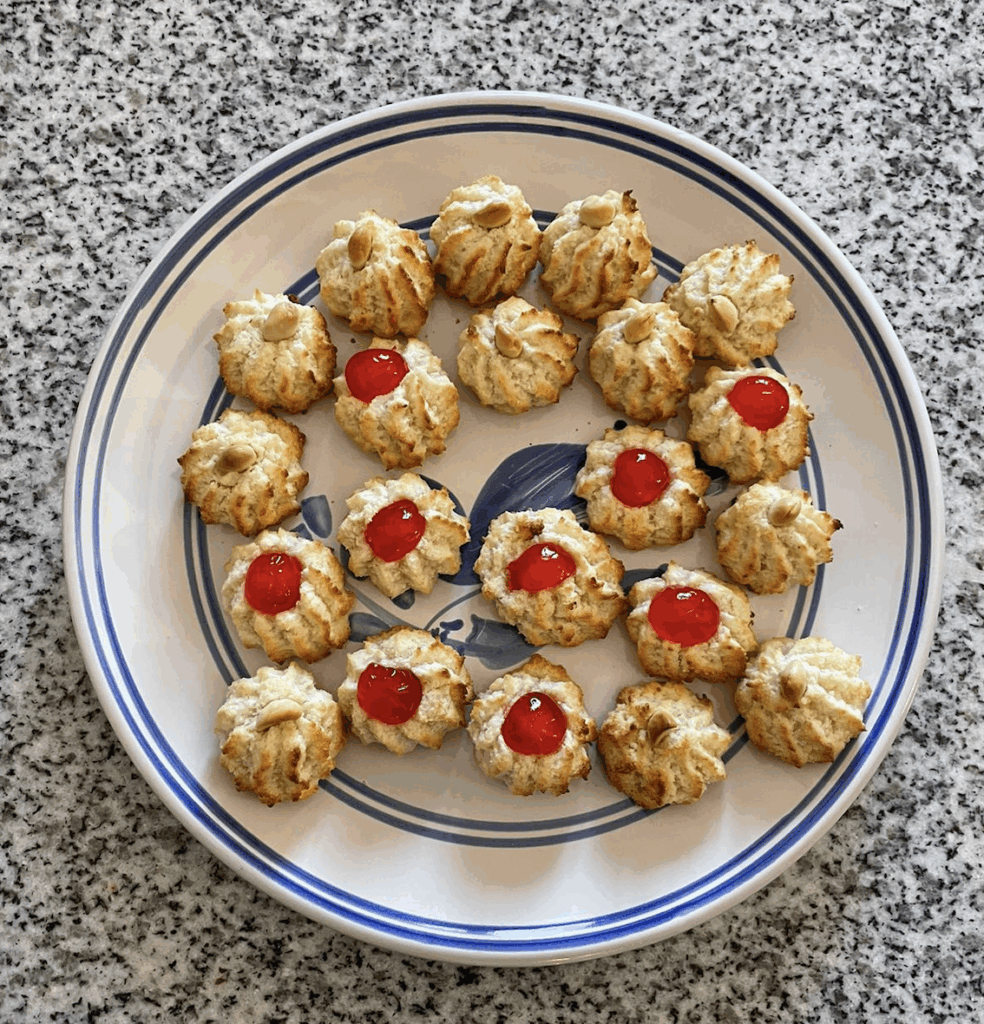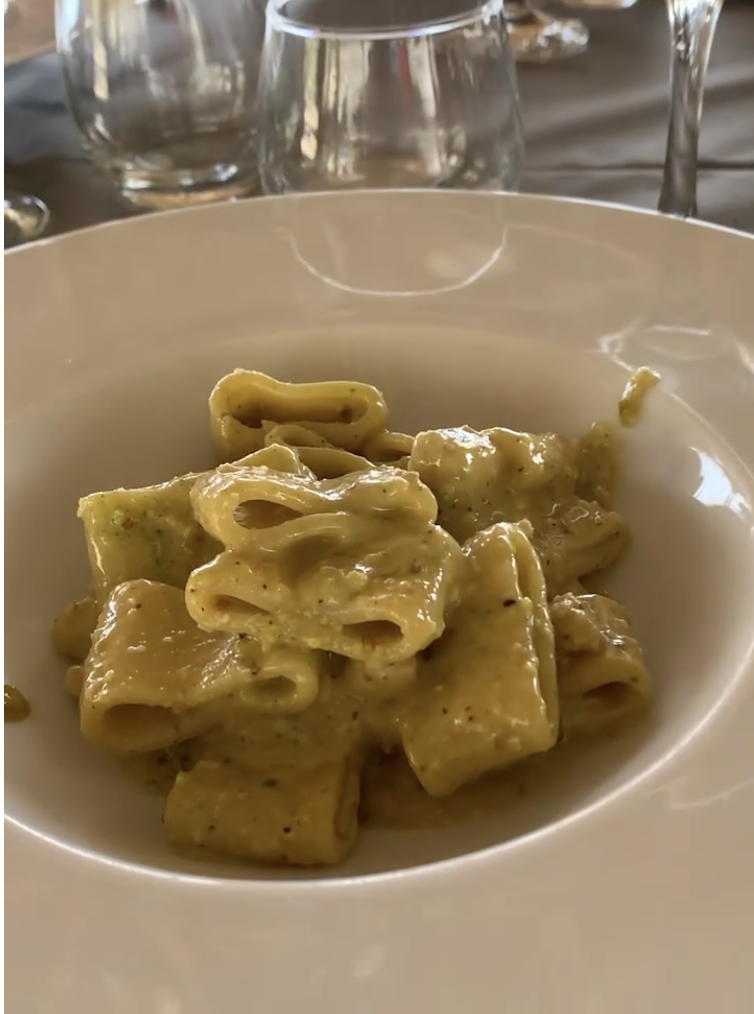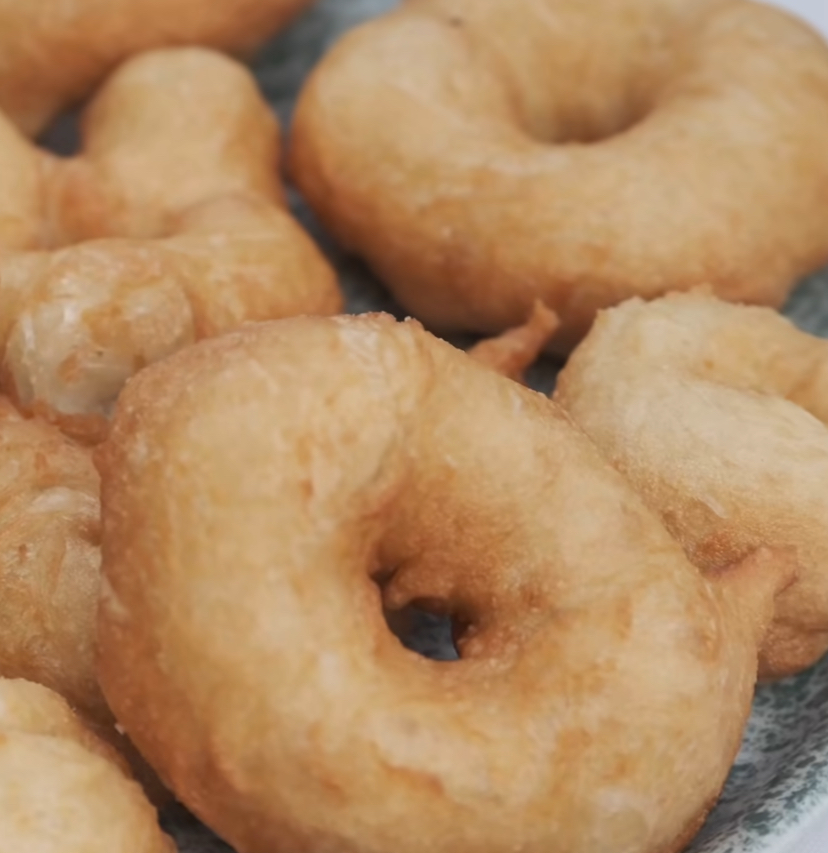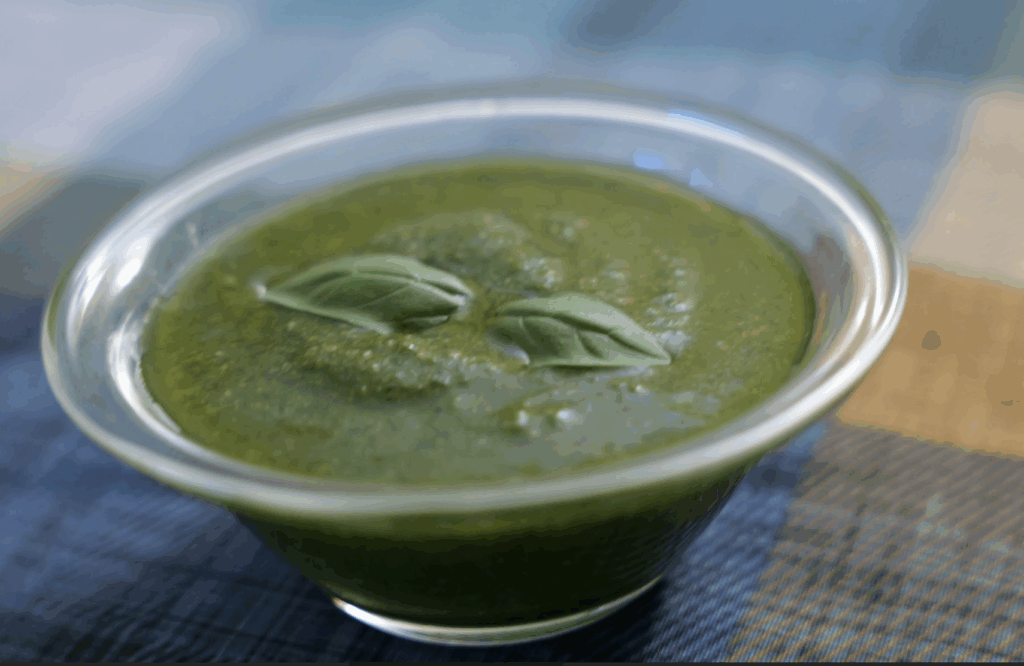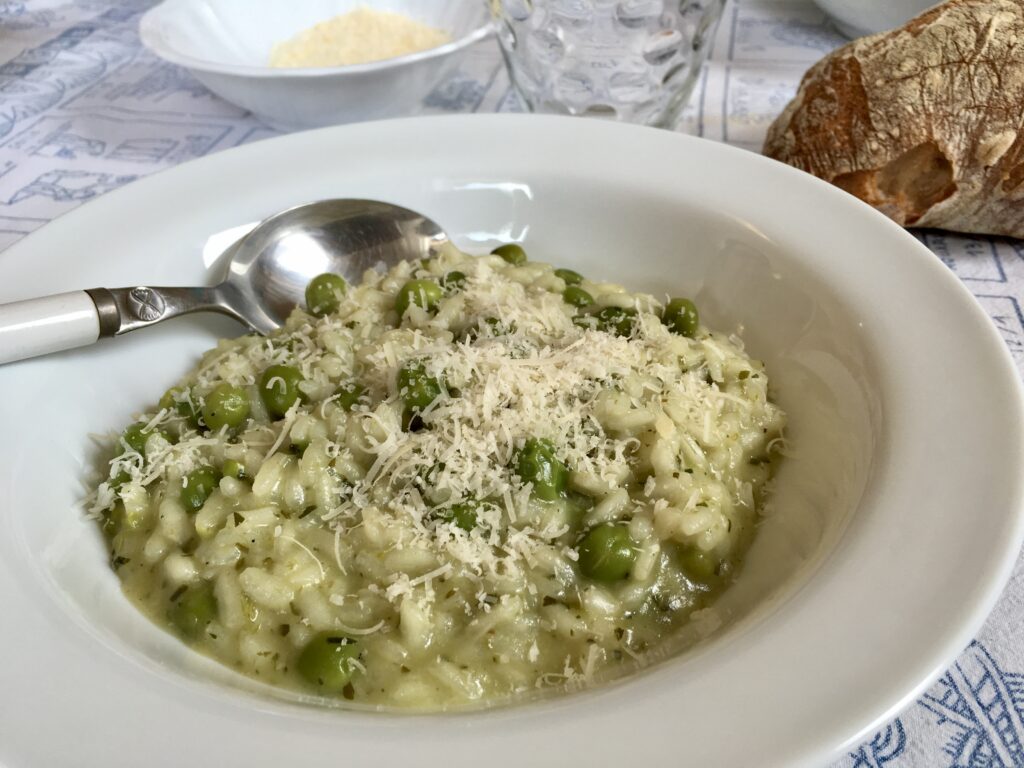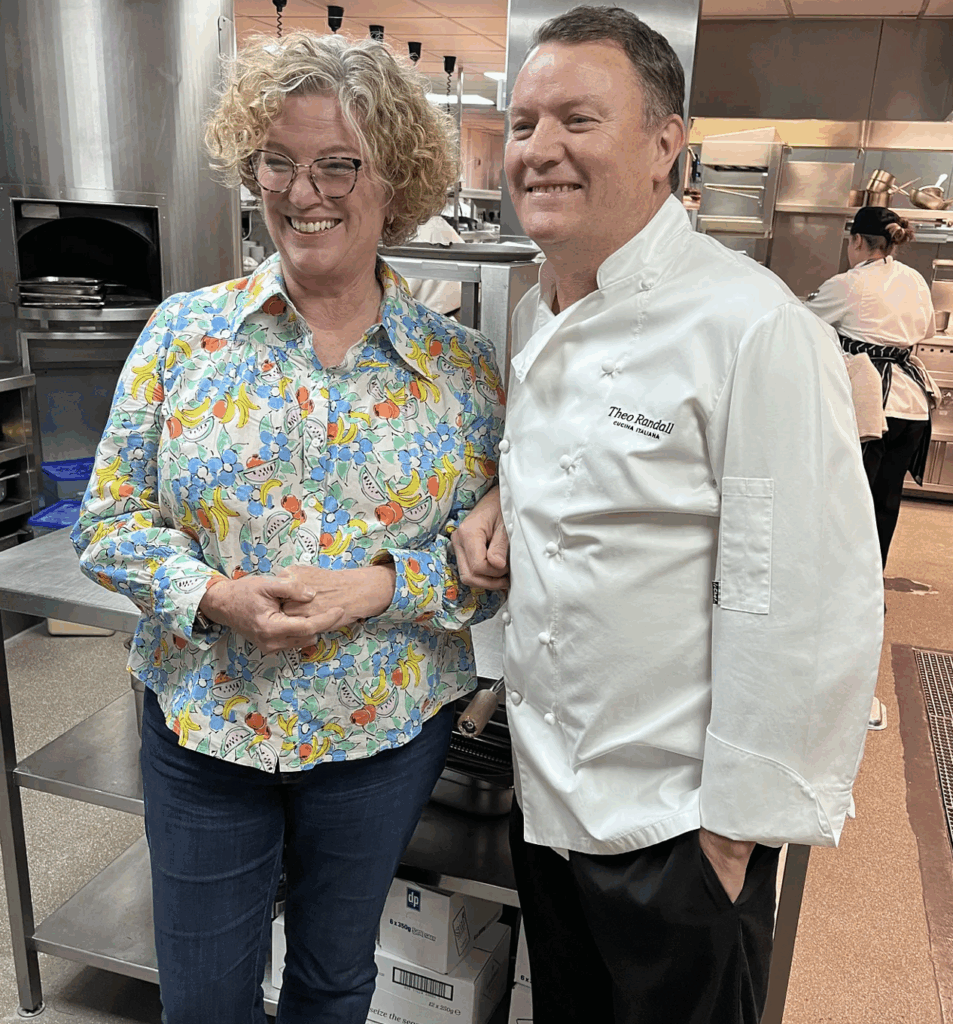
Theo’s Randall’s life-long passion for simple Italian fare took him from Chez Panisse in California to Head Chef and Partner at The River Café, London. In 2006, Theo brought this experience to the prestigious address of No. 1 Park Lane when he opened Theo Randall at the InterContinental. Last month, Team Pasta Grannies had the absolute pleasure of filming with Theo at his restaurant inside the Intercontinental Park Lane Hotel. Our Pasta Grannies creator, Vicky Bennison, chatted to him about all things ricotta and Italian food while he whipped up the most delicious ravioli in sage butter. To finish, it was drizzled with caramel-tasting brown butter and a generous sprinkling of Parmigiano Reggiano; absolute heaven! It didn’t last long after the camera was off, but we need manage to snap a quick picture before devoured most of it!
For his highlights on Italian cuisine, his key food influences, and his top tips for making ravioli, tuck into the highlights of our conversation below:
Vicky: Hello! Welcome to Theo’s Randalls’ kitchen at the Intercontinental.
Theo: I am so delighted to be on the Pasta Grannies channel! It’s such a lovely thing to be on. I love everything about Pasta Grannies. For me, Italian food is all about the grannies. The nonnas, I mean! They’re the ones that cook this incredible food. And for you to make them superstars is just such a lovely thing. You see all their characters coming out. So to be online in the same space as all these wonderful nonnas is just such an honour. So thank you for having me.
Vicky: Thank you for having us into your kitchen! It’s an honour. So, tell us a little about what are we going to be chatting about and making today? And why have you chosen it?
Theo: Ricotta. Ricotta is the by-product of making cheese. And the way you make ricotta is you’ve got to boil the whey.
You leave it for 24 hours and then you bring it to a boil. As a result, you get this sort of solidified substance, poured through a sieve to give you an incredibly soft texture, a bit like cottage cheese with a really creamy taste. Today’s is made using cow’s milk and is the one you see in most places, but sheep’s milk varieties do exist too. And I always buy fresh Italian ricotta if I can. A lot of the supermarkets mix in UHT cream which gives it a longer shelf life, but real ricotta should only last for three or four days. This is the real McCoy.
Vicky: And what’s the difference between this and sheep’s ricotta? Can we taste the difference?
Theo: Yes, sheep ricotta has a different flavour profile wi It’s very, very sweet. And this tends to be what most would use in most manners of pastas and pastries. Thing like cannoli and cassata.
Vicky: And so what are you going to make for us with it today?
Theo: I thought I’d make a little bit of ravioli with some herbetti – fantastic as this incoming Spring time of year. Does that sound good?
Vicky: That sounds fantastic. Utterly wonderful. On our last trip to Sicily, we had the opportunity to try the goat ricotta, the kinds with the swirly horns. And from such strong looking creatures, the taste is light and delicate. What’s the best ricotta you’ve ever tasted?
Theo: The first time I tasted sheep’s ricotta was in Sicily. And it was in the town of Castel del Farno, where they produce huge amounts of olive oil.They have the Nocerella del Delice olive, which is those big, lovely green table olives and they make the most fabulous, grassy olive oil. And I remember going to this person’s house. They had a delivery from a shepherd of some warm ricotta and I had a slice of this warm ricotta with this olive oil poured on top. And I think I ate half of the ricotta block! It was just so good. But when you taste things like that, you just realise sometimes the simplicity is so incredible. That’s the thing about Italian food. It’s very much the less of the best is more; it’s all about the quality of the product.
Vicky: Absolutely! So, talk to us about your ravioli recipe.
Theo: It’s about 20 egg yolks per kilo of flour. So, it’s a very, very rich pasta dough.
Vicky: What eggs do you use?
Theo: So we’re using St. Ewe Eggs, from Cornwall. They have an incredibly rich yolk which gives it a lovely flavour. But also texture as well.
Vicky: And tell us about your flour?
Theo: So this recipe is predominantly 00 pasta flour and fine semolina flour. And then we use probably about 70% egg yolk and 30% white. So it’s a very, very lovely rich dough. It works so nicely for making ravioli, tagliatelle, or pappardelle.
Vicky: And you use metal rollers? You know, if we were in Emilia-Romagna, we’d be rolling it with a wooden rolling pin….
Theo: But we’re sadly not, no. We make so much pasta in the restaurant. You know, it’s easier. Obviously, we’d love to just do it by hand, but…we can’t. We haven’t got enough space for the number of lovely people we feed in one night.
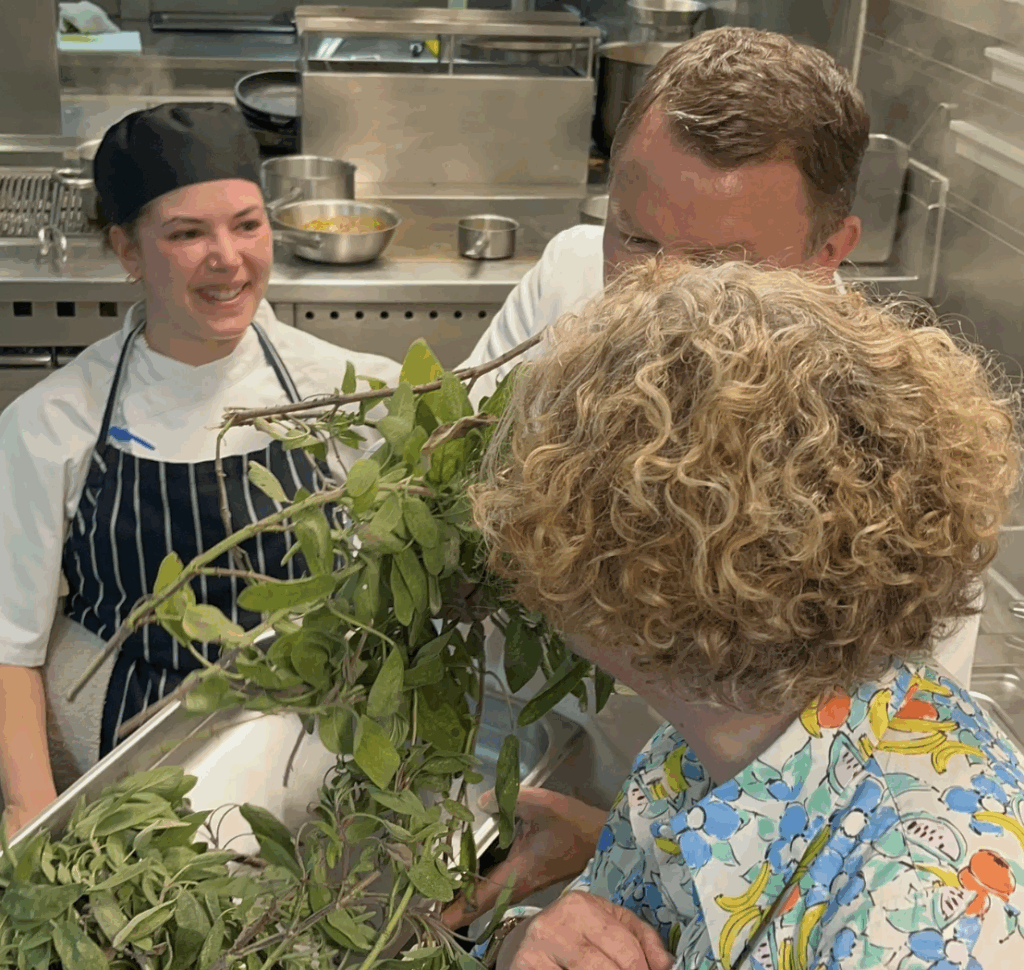
Vicky: And tell us about what greens are going in with the sheep’s ricotta?
Theo: So, we’ve got some erbette – mixed greens. We’ve got cima di rape, which gives it that sort of earthy flavour; Swiss chard, which is sweet; and then rocket, which is punchy and peppery. And we blanch those very lightly to retain their flavour. Mix them up with a little bit of fennel seed. And what’s really important that it’s dry. So we drain it in a colander then we’ve squeeze it in a cloth to make sure there’s no water left in. That’s the biggest mistake when making fresh pasta or making any kind of stuffed pasta. If your mixture is wet, the moisture breaks down the pasta, and so when you cook the ravioli, it just falls to pieces.
Vicky: So the ratios and the technique are incredibly important. And the nonne – the pasta grannies – make it look easy.
Theo: They do, but it’s in their blood! Although I’m sure the grannies would have foraged most of these ingredients locally. That’s when it’s best though, when it’s freshest. I love when you go somewhere in Italy and you see people queuing up outside the shops to buy the burrata so they can get it at its freshest. By 10 o’clock, it’s all gone! That’s what I love about Italians. They’re all a bit mad about food. It’s so lovely.
Vicky: So what other ravioli or pasta dough tips do you have for us?
Theo: When making ravioli I always use a water spray. The moisture will help it to stick together. And then my other tip is to make sure the little mounds of filling are nice and neat.
Vicky: What do you think are the kind of absolute key is to making great ravioli?
Theo: The key to making great ravioli is make sure that the filling is really tasty. It’s got to be very well-seasoned. The other thing is to make sure that your pasta is not too thick. You don’t want double thickness because then it gets very chewy. And then make sure the filling is nice and thick but the pasta is thin. Oh and make sure there’s no air hole pasta when you go to press down the edges. Take your time. Don’t rush the last steps.
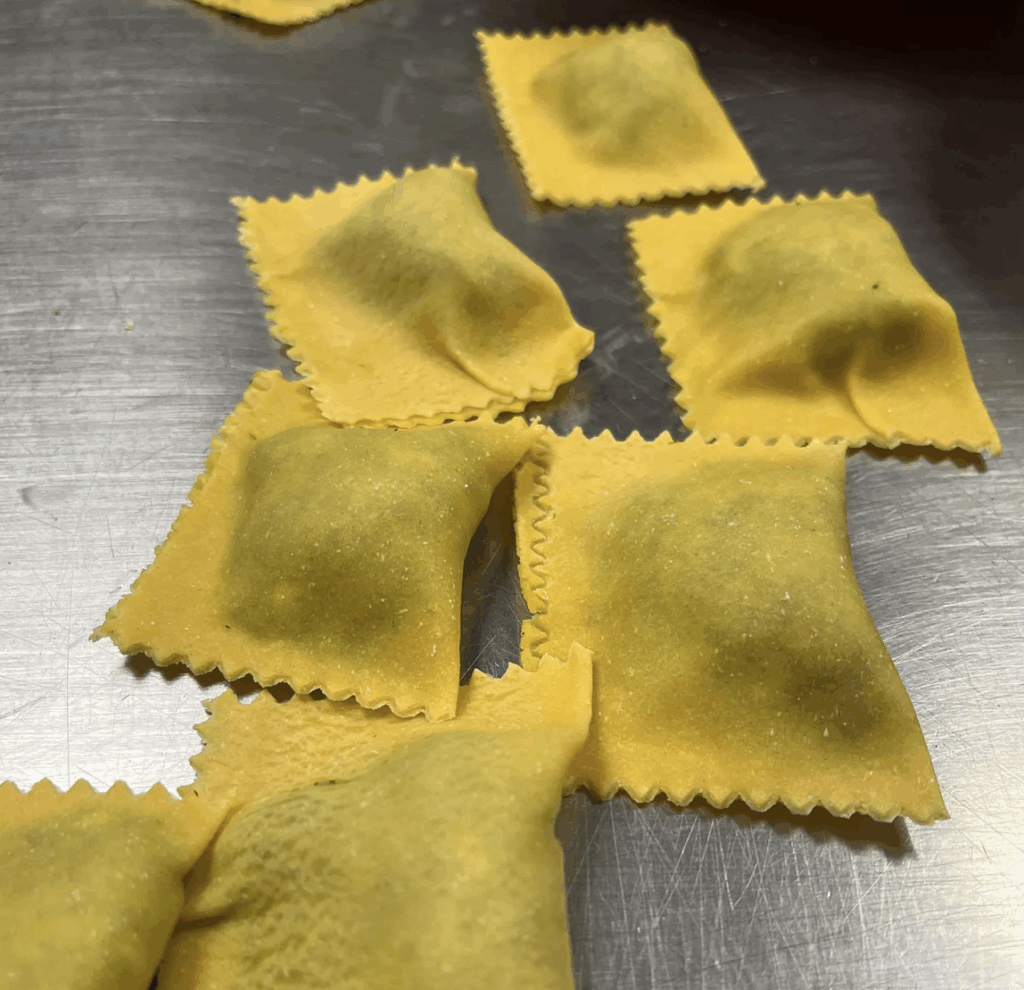
Vicky: And obviously you’ve mastered this after years of culinary practice in so many different kitchens. Tell us a bit about your chef’s journey to come to run the kitchen here at the Intercontinental?
Theo: We opened the restaurant in 2006. So we’ve been here a very long time. Before that, I was the head chef at the River Café in Hammersmith. Well, that’s where it all started, really. But I originally trained and worked at a restaurant called Chez Max, and then I was at River Café. After that, I went off a sabbatical at Chez Panisse before coming back to The River Cafe, and it just River grew and grew and grew. It was an amazing time because we started off with this small little restaurant; three of the little studios in Thames Wharf. I remember when I first went there in 1989, there was a four-burner gas stove, a chargrill, and a deep-fat fryer. And that was the kitchen. I mean, the River Cafe just went from being sort of this little place to being this incredible, and still is, this iconic restaurant. And I remember that first summer working there, looking out the window, and there’s Martina Navratilova sitting there, sort of over the Wimbledon hill, and Boris Becker. All these famous people just used to come there. It turned out to be two stars. And we cooked really, the real Italian food.
Vicky: And what was the Italian food scene like then?
Theo: At the time in London, Italian food was quite unexciting. There was veal Milanese, spaghetti but that was it. It wasn’t real. And not the kind of thing that was cooked by Italians. I mean, there were Italians but they weren’t necessarily trained chefs. And so River Cafe was a restaurant that just sort of became this, it sort of recreated what Italian food was all about.
Vicky: And who were your main food influences, other than all the chefs you encountered during your training?
Theo: That first sort of passion of having Italian food is a memory of eating spaghetti vongole in Venice. And also my mother had this incredible book collection of cookbooks. One of the favourites was Elizabeth David’s Italian Food which is, you know, a bible to people like us. And when I went to River Cafe, meeting Rose and Ruth, just such brilliant people, it all kind of reignited again. It’s the focus on the ingredients I love so much.
Vicky: So, your grannies weren’t much of an influence then?
Theo: My father’s mum was a good cook. She was a good baker but my mum’s mum; she wasn’t! I think that’s probably one of the reasons why my mother was such a great cook; sometimes it can inspire you to cook for yourself better. I grew up with food though. I grew up with parents that were into travelling. I used to go on holiday, and we’d go to France, we’d go to Italy, and we’d go to these restaurants, and the chef would come out, and the chef was this grand person that would sort of turn up. And I think, oh, this guy, this woman is amazing, you know. And so it’s kind of just sort of grew from there, and I just had this sort of love, love of restaurants at a very early age, whether it was French or whether it was Italian. But it was that kind of strong character led cooking that really got me into cooking. And then, you know, the whole Italian thing has always been a huge passion of mine.
Vicky: That makes so much sense! And how often do you go back to Italy? As much as possible.
Theo: We always have a big family holiday in Puglia in the summer. I probably do two or three trips a year. I go for olive oil or go to see a supplier or something. Sadly running a restaurant, means there’s only so much time I can go. But, yeah, I mean, I always feel like we’re in a little bit of Italy here, even in here London. To help that we do a regional menu every month.

Vicky: So what’s on at the moment?
It’s Relazio at the moment. So we’ve got cappuccino alla romana – a coffee served with a scoop of ice cream in it. We have prosciutto. We’ve got pasta fettuccine alla marciziana, which is with guanciale, pecorino, and tomato. And nothing else! Those are the only three ingredients that are in that dish. You have to stick to the rules. Then we’ve got a lovely pollo alla romana; chicken stock with lots of peppers, and wine and fennel. And then we’ve got a costata di ricotta with an amaretti gelato. And we serve them with wines from that region, of course.
Vicky: Wow, it sounds wonderful. So typical and so classic.
Theo: Exactly. We feel that we’re trying to express what Italian food is all about: the simplicity and the tradition of it. And that’s why I love what you do. I mean, it really is classical cooking.
Vicky: Well, thank you. To hear that from such an established, experience chef like you means a lot. After tasting this ravioli, we’ll be back to devour more of your regional menu soon.
Theo’s InterContinental London Park Lane restaurant can be found at One Hamilton Place, Park Ln, London W1J 7QY. You can find him and the team on instagram @icparklane.
